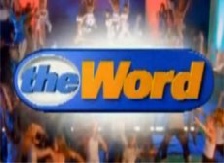
TV Pop Diaries
Pop Music on British Television 1955 -
24 Hours, a new television production company, had been invited to tender for a new Friday evening pop show to debut late summer 1990. They assembled a production team, led by Charlie Parsons, who hired Manchester DJ Terry Christian and media friendly ‘wildchild’ Amanda De Cadenet as main hosts.
The pilot show was filmed 10th August 1990, with the first edition debuting two weeks’ later. The intention was to bring back a little of the spirit of The Tube by mixing pop music with lively, informal chat. What they got was the nearest British television got to proper anarchy since Tiswas. It got under way without much fuss and evidently not much of an audience either, but it was deemed successful enough by the commissioners at Channel 4 to warrant a second series, with the suggestion that that the show go out live, late at night, when people were coming back from the pubs and clubs. If they had known then what was in store for the presenters, the home audience and the producers, they might have thought twice. Luckily they didn’t.
Drawing on the newly confident dance and indie scene in Britain and grunge from America
it’s to the show’s credit that they brought onto television acts that probably no-
Other legendary articles included a report from America on a penis enlargement, with
shots of the surgery to prove it wasn’t a fake. Another Word classic was a comment
made by a member of the Disposable Heroes of Hiphopcrasy, wearing a “fuck homophobia”
t-
The set design was basic white with two stages, a large dance area for both the audience and professional dancers, while the host was separated from the guests in the seated interview area by a television screen, while on the table a photo of a personality from that week’s news would be in a frame surrounded by vibrating petals, responding to any noise.
The budget (which included sponsorship from Swatch) would stretch to various live
reports via satellite from around the world, including Spring Break in Florida, gay
and lesbian parades in Australia, handled by, usually female, co-
The show was musically perfectly cast, giving early breaks for Nirvana, Oasis, L7,
in fact most of the later baggy bands and American indie / grunge and hip-
After nearly five years (and fearing that they had to be seen to be doing something about the show) it was eventually censured by the Independent Television Commission (the organisation Channel Four are answerable to) and shortly afterwards it was announced by Channel Four that the show would not be invited back for another series. This time the farewell was for real. P45s were dished out and at time of writing Terry Christian and Katie Puckrick are the only ones even remotely visible on TV, Mark Lamarr disappeared after hosting many excellent TV and radio shows, while Amanda De Cadenet (who left after the second series) embarked on an acting career in Hollywood.
A spokeswoman for the producers claimed "It took guts to broadcast The Word -
Although the new lad / new girl cult was to be exploited to better and more obvious effect elsewhere (The Girlie Show / They Think It’s All Over) The Word was genuinely groundbreaking, and much missed.
THE WORD
CC4 / 24 Hours
4th August 1990 to 24th March 1995
